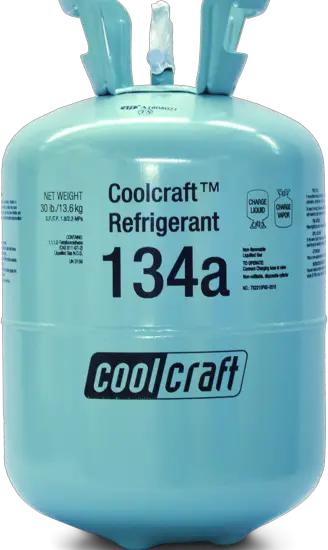Which refrigerants can be mixed in an appliance? That’s the burning question we are about to tackle. Picture this: you’re a handy person who likes to get their hands dirty, tinkering with appliances. Now, refrigerants are crucial for these machines to keep our food fresh, our rooms cool, and much more. But when it comes to mixing them, things can get a little fuzzy. Let’s clear the mist, shall we?

Table of Contents
Brief overview on refrigerants
Refrigerants, they’re the silent workers inside your appliances. They are essentially what make air conditioners and refrigerators function, transforming warm air into cold. Fascinating stuff, isn’t it?
Which Refrigerants Can be Mixed In an Appliance?
So, you’re searching for the lowdown on which refrigerants can be mixed in an appliance. Perhaps you’re a budding DIYer or maybe a professional looking for some clarification. Either way, you’re in the right place!
Understanding Refrigerants
The Purpose of Refrigerants in Appliances
So what’s the big deal with refrigerants? Well, they’re what make your ice cream stay frozen and your home cool during a summer heatwave. They’re part of a fascinating heat transfer process within appliances, making our lives more comfortable. Who wouldn’t want that, right?
Common Types of Refrigerants
There’s a whole variety of refrigerants out there. You’ve got your HCFCs, HFCs, CFCs, and even natural refrigerants. But each one plays a different role in the world of appliances and impacts the environment in different ways. The EPA provides a great rundown on this.
The Principle of Refrigerant Mixing
General Rule for Mixing Refrigerants
Now, let’s talk about mixing. Generally, it’s a no-go. Think about it like baking; using the wrong ingredients can ruin your cake. Similarly, mixing different refrigerants can lead to a whole host of problems.
Cases When Mixing Might Occur
Sometimes, refrigerants can get mixed up unintentionally. Like when you’re topping up a system without knowing what’s already in there. This can be risky business, as not all refrigerants play nice together. Better be safe than sorry!
Can Any Refrigerants Be Safely Mixed?
Refrigerant Blends
Some refrigerants come premixed. They’re like the ready-made cookie dough of the refrigerant world. These blends are designed to work together safely and efficiently.
Azeotropic and Zeotropic Mixtures
Azeotropic and zeotropic mixtures, you might have heard of them. They’re special types of refrigerant blends, each with their own quirks. They’re different from just mixing any old refrigerants together. Trust me, it’s not the same thing!
Possible Exceptions to the General Rule
There are a few exceptions to the “no mixing” rule. Certain refrigerants might be mixed safely under very specific conditions. But always remember, this should only be done by a pro following the right guidelines.
The Risks of Refrigerant Mixing
Impacts on Appliance Performance
Just like putting diesel in a petrol car, mixing refrigerants can mess up your appliance’s performance. It can lead to inefficiencies, breakdowns, and even costly damage. Not ideal, right?
Environmental and Health Hazards
Besides messing up your appliances, mishandling refrigerants can also pose risks to the environment and health. It’s not just about keeping your food cool, it’s about keeping our planet cool too!
For more articles on refrigerants, click here.
Proper Handling and Disposal of Refrigerants
Legal Requirements for Handling Refrigerants
There are legal regulations to follow when handling and disposing of refrigerants. Breaking these rules can result in penalties. So let’s stick to the rules, folks!
Best Practices for Refrigerant Management
Handling refrigerants isn’t rocket science, but it does require care. There are guidelines out there to help us do it safely and environmentally friendly. Like the old saying goes, prevention is better than cure.
Conclusion
So, which refrigerants can be mixed in an appliance? Generally, it’s best not to mix unless you know what you’re doing. Stick to the rules, keep our appliances and planet safe. Remember, with great refrigerants, comes great responsibility!